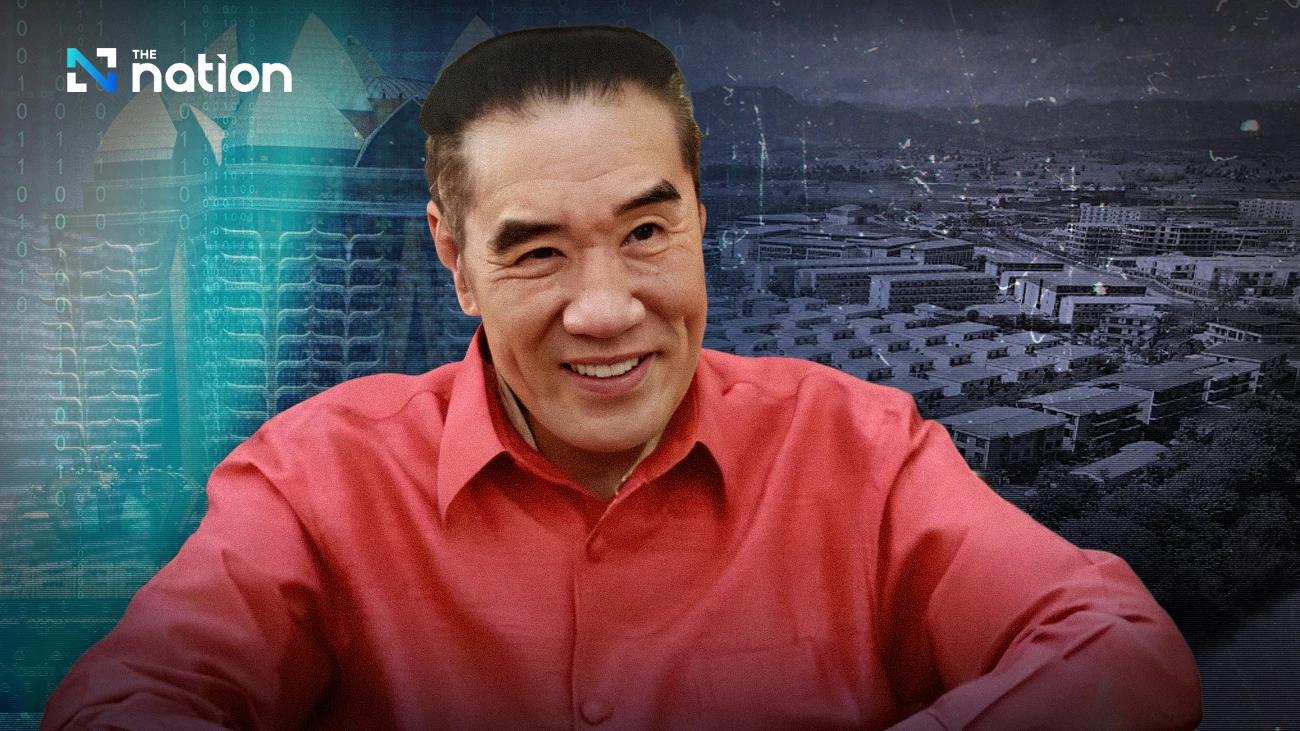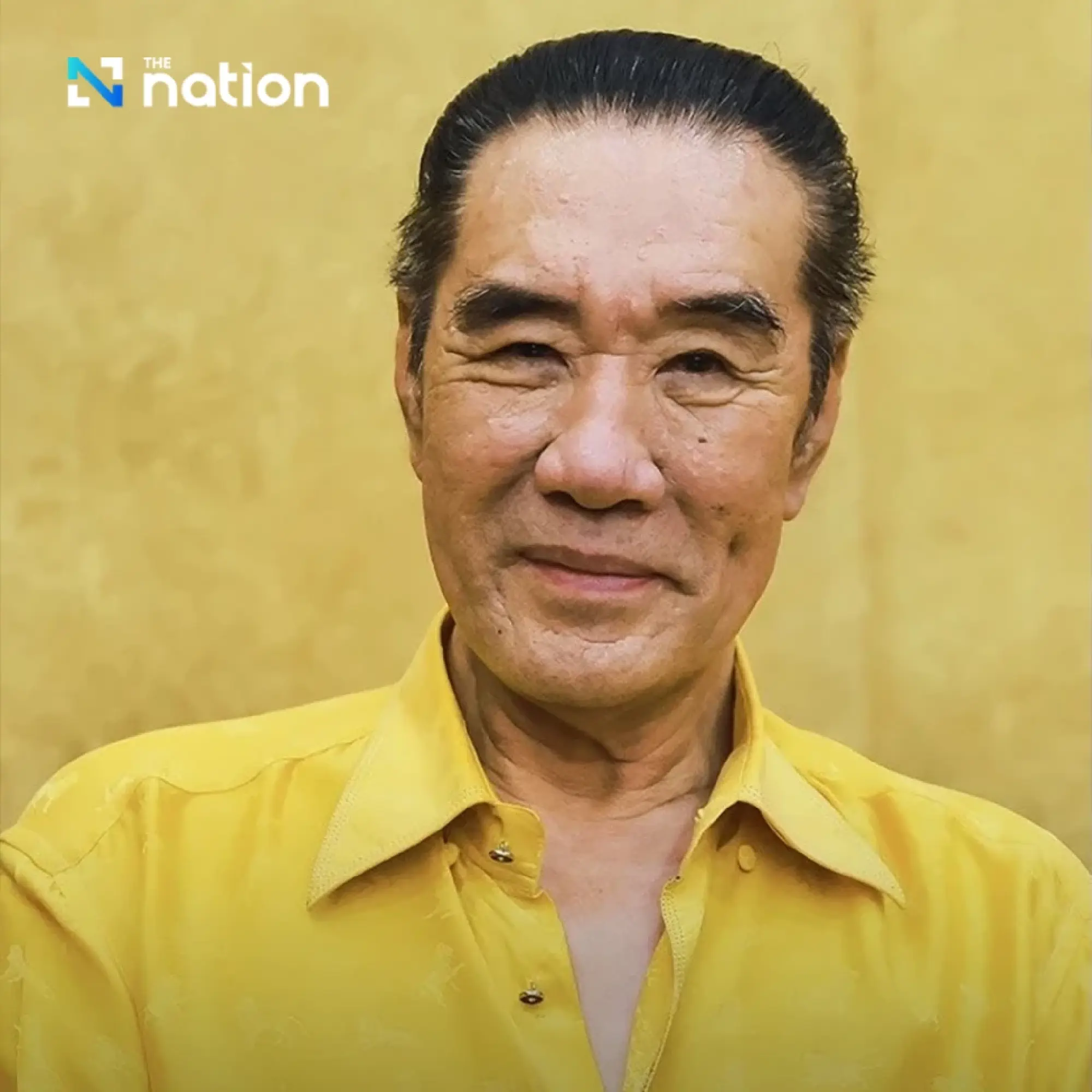
Tension is once again rising along the Thai–Myanmar border following the Myanmar military’s air strikes on KK Park, a notorious scam hub in Myawaddy. Thai residents in Mae Sot district, Tak province, have reported hearing heavy explosions across the Moei River—likened to fireworks set off by the Myanmar Army and the Karen Border Guard Force (BGF).
On 26 October 2025, around 1,243 people of 28 nationalities fled across the Moei River into Thailand as Myanmar troops advanced. Among them were suspected Chinese ringleaders who allegedly slipped through natural crossings in Mae Ramat district, believed to be heading for Kings Romans Casino opposite Chiang Saen, Chiang Rai province.
Although details remain unconfirmed, the mention of Kings Romans inevitably brings to mind Zhao Wei, the chairman of the Golden Triangle Special Economic Zone (GTSEZ) in Bokeo province, Laos.

A long shadow of suspicion
In late 2022, Thai whistleblower Chuwit Kamolvisit accused Zhao Wei of links to Tu Hao, a key figure in the Chinese “grey” business network, claiming the Dok Ngiew Kham Company—connected to Tu Hao—had invested in KK Park.
Zhao Wei fired back with a fiery press conference denying any investment by Dok Ngiew Kham in KK Park.
Yet Zhao Wei and his Kings Romans empire have long drawn the attention of Western governments.
In 2023, the UK, Canada and the United States jointly announced sanctions on individuals tied to Chinese-funded enclaves near Thailand’s borders—naming Zhao Wei, She Zhijiang, and Saw Chit Tu—citing UN reports linking them to forced labour and human trafficking through online scams.
It was not Zhao Wei’s first brush with sanctions, but he has consistently denied all allegations of trafficking or narcotics involvement.

The ‘Zhao Wei model’

Beijing began cracking down on cross-border call-centre gangs in 2024, launching the so-called “Zhao Wei model” in coordination with the Lao government to purge telecom-fraud networks within the GTSEZ.
Chinese and Lao police carried out joint raids, after which Laos’s Ministry of Public Security declared early in 2025 that no call-centre gangs remained in the Golden Triangle.
The “Zhao Wei model” contrasts sharply with Myanmar’s lawless “Laukkaing model.” Zhao Wei enjoys official backing from the Lao PDR government and apparent leniency from Beijing, which continues to regard him as a stabilising figure in the region.
Mekong analysts suggest that China’s so-called “grey economy” may serve as an informal geopolitical tool, balancing Western influence while keeping illicit networks under tacit control—ensuring such scam operations never fully disappear.
When Yunnan authorities tightened border controls and cracked down on organised crime, Zhao’s casino operations were forced to close.
In 2007, he re-emerged in Laos, securing a 50-year concession to develop the Golden Triangle Special Economic Zone in Ton Pheung district, Bokeo province.
Laotian leaders hailed Zhao Wei as a legitimate investor and visionary developer, turning his enclave into a showcase SEZ for the country.
Zhao Wei developed close ties with Somsavat Lengsavad, the former Lao deputy prime minister of Chinese descent. The two were known to share a personal friendship—Lengsavad’s ancestors had migrated from Wenchang, Hainan, to Luang Prabang during the French colonial era.
During his tenure, Lengsavad personally pushed for the approval of Zhao Wei’s 50-year concession.
Beijing’s outpost in the Golden Triangle
Experts note that Zhao Wei’s empire—straddling the frontiers of Myanmar, Laos and Thailand—has become more than a private enterprise.
To many observers, it functions as a strategic outpost of Beijing, keeping watch over US activity in the region and securing China’s foothold in mainland Southeast Asia.
While Western nations see Zhao Wei as a criminal mastermind, others in the Mekong view him as Beijing’s pragmatic operator—the man who turned a no-man’s-land of casinos and trafficking routes into a tool of Chinese influence.
No comments:
Post a Comment